
13 Filmmakers Discuss the Future of Queer Cinema: Insights, Encouragement, and Calls to Action
This is the article I wish I had discovered and read when I was a queer child searching the magazine racks in San Francisco for anything related to filmmaking.
As a proud queer filmmaker, I feel a strong desire to elevate the voices of some of the most remarkable queer filmmakers during a time when queer individuals seem to face intensified scrutiny. To examine and understand the realities of filmmaking as queer creators, we posed three identical questions to them:
1. What specific threats does queer cinema face in comparison to general filmmaking, and what are the most effective strategies to tackle these threats?
2. Do you believe that executives and decision-makers genuinely appreciate the importance of queer narratives, or are they merely offering surface-level support? Obviously, financial motives influence choices — should queer stories be relatable enough to resonate with heterosexual audiences, or is it more advantageous to concentrate on queer viewers?
3. Should we depend on studios, or should we take the DIY/guerilla approach? If it’s the latter, which conventions should we be prepared to bend or abandon?
These are 13 filmmakers whose work embodies vision, passion, radical action, and a profound love for cinema. Their films consistently shine through.
EVE LINDLEY
Eve Lindley (center, above) is a filmmaker and actor recognized for her roles in projects like National Anthem (2024), Bros (2022), Dispatches from Elsewhere (2020), and All We Had (2016).
I believe the greatest threat to queer filmmaking is the risk of being typecast. Honestly, there’s a danger that our films and projects might be seen as too niche to enter mainstream discussions.
We can address this by highlighting universal human experiences such as love, loss, and pain — things that resonate with everyone.
I view all stories as niche, but I assert that niche narratives can possess universal appeal. I can't connect with The Brutalist in the same way I do with Wicked. Both films are highly niche, yet I relate to each because I choose to. Ultimately, it hinges on the willingness of executives and audiences to engage.
After over a decade of relying on studios, I’ve experienced burnout and disappointment. I find that making art for myself, by myself, is the most fulfilling. I advocate breaking the rules you’re willing to break to complete your project. It’s often better to seek forgiveness than permission.
BRIAN MICHAEL SMITH
Brian Michael Smith is an actor, filmmaker, and advocate, known for being the first Black openly trans man to hold a series regular role on network television, with notable roles in 9-1-1: Lone Star and Queen Sugar.
As queer individuals, we currently face a literal existential threat. Our civil rights are gradually being eroded under executive orders and from various sectors of government and society. There are forces actively working to legislate us out of existence.
This reality will, undoubtedly, affect all aspects of our existence, including our means of expression.
Additionally, there’s a social withdrawal occurring around queerness in media. Despite a growing number of Americans identifying as queer, many companies are hesitant to support LGBTQ+ artists due to fears of backlash from “anti-DEI” legislation and certain segments of the population that oppose progressive ideals.
Consequently, we're witnessing a decline in the representation of queer characters in mainstream films and TV shows, as well as fewer queer stories finding an audience outside queer media platforms.
We combat this, as always, by continuing to create authentic and compelling content that reflects our experiences. People yearn for authenticity, and in times of oppression, it's crucial to showcase stories of individuals challenging norms and carving their own paths. Our narratives have historically given others the courage to embrace their true selves.
SYDNE HORTON
Sydne Horton is recognized for her films Saturday Ritual and Meta, where she delves into themes of identity, belonging, and self-discovery through genres like horror, drama, and comedy. She has received accolades such as Best Teen Film at NewFest and a world premiere at Palm Springs ShortFest, and is a mentee of Women in Film Directing.
The best approach to combat these threats is to maintain perseverance. Discover the stories you need to share and seek out those who wish to amplify those narratives.
Connect with queer filmmakers, allies, queer businesses, and festivals to collaborate on bringing these stories to life.
Also, act as your own marketing team alongside friends if necessary, and be open to sharing projects on platforms like YouTube and Vimeo. It's vital to disseminate our work — it is needed by all.
Moreover, it's important to continue challenging the boundaries of these narratives. This involves allowing stories to educate while also diversifying the representation of LGBTQ+ experiences beyond the conventional queer stories we’ve encountered.
By fostering and generating this “radical” content, I hope we can create more opportunities for understanding, support, and inclusivity.
ANDREW KLAUS-VINEYARD
Andrew Klaus-Vineyard (seated,













Other articles
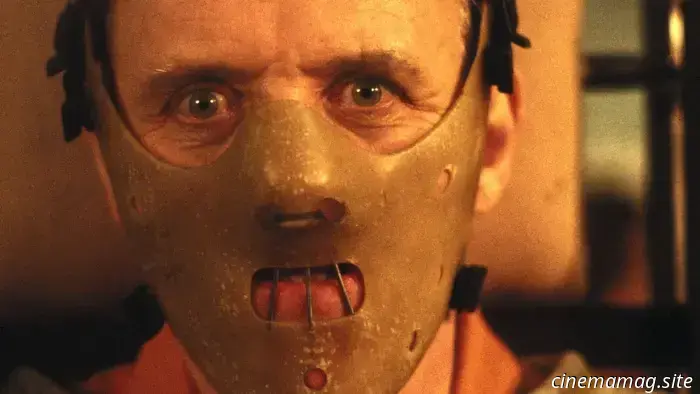 The 12 Most Impressive Movie Masks Ever
These movie masks assisted filmmakers in creating sinister or enigmatic narratives, quickly drawing us into their intricate realms.
The 12 Most Impressive Movie Masks Ever
These movie masks assisted filmmakers in creating sinister or enigmatic narratives, quickly drawing us into their intricate realms.
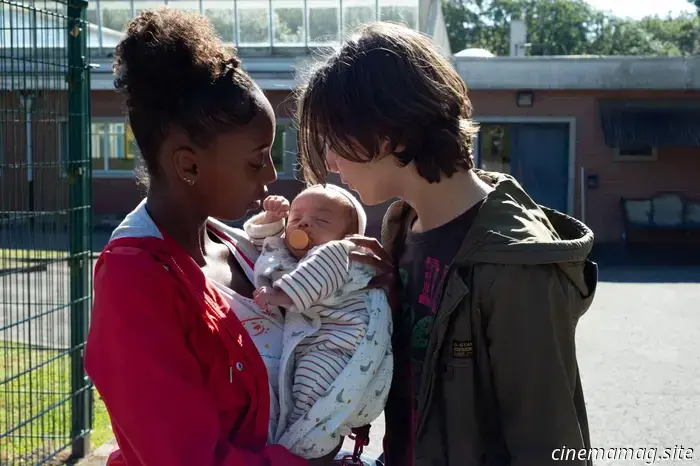 Cannes Review: Jean-Pierre and Luc Dardenne Discover Sorrow and Emotion in The Young Mother's Home
The latest film by Jean Pierre and Luc Dardenne follows a similar pattern to their previous works. It features mainly non-professional actors, is set in authentic locations, explores sociological themes, and frequently maintains a tense atmosphere. Their newest subject revolves around unplanned pregnancies and the choices presented to young French women who perceive their circumstances as challenging.
Cannes Review: Jean-Pierre and Luc Dardenne Discover Sorrow and Emotion in The Young Mother's Home
The latest film by Jean Pierre and Luc Dardenne follows a similar pattern to their previous works. It features mainly non-professional actors, is set in authentic locations, explores sociological themes, and frequently maintains a tense atmosphere. Their newest subject revolves around unplanned pregnancies and the choices presented to young French women who perceive their circumstances as challenging.
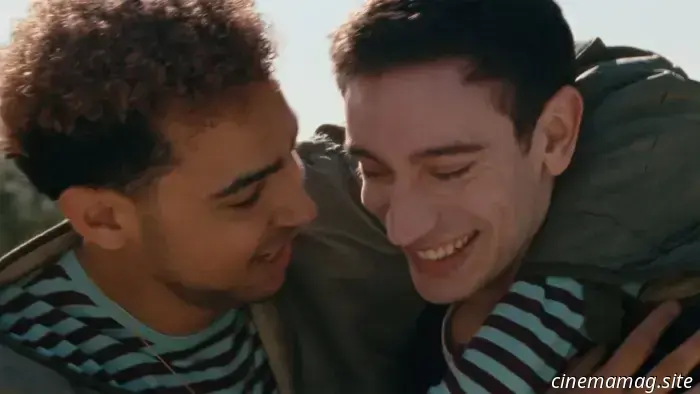 Lurker Trailer: Théodore Pellerin Aims for Fame in Sundance Highlight
One of the most talked-about films to emerge from Sundance and New Directors/New Films this year, Lurker is the directorial debut of Alex Russell, who is known for his work as a writer and producer on The Bear and Beef. This cat-and-mouse thriller features Théodore Pellerin, Archie Madekwe, Zack Fox, Havana Rose Liu, Wale Onayemi, Daniel Zolghadri, and Sunny Suljic, and is scheduled for an
Lurker Trailer: Théodore Pellerin Aims for Fame in Sundance Highlight
One of the most talked-about films to emerge from Sundance and New Directors/New Films this year, Lurker is the directorial debut of Alex Russell, who is known for his work as a writer and producer on The Bear and Beef. This cat-and-mouse thriller features Théodore Pellerin, Archie Madekwe, Zack Fox, Havana Rose Liu, Wale Onayemi, Daniel Zolghadri, and Sunny Suljic, and is scheduled for an
 Predator: Killer of Killers clips transport us to Feudal Japan and the era of World War II.
In anticipation of its release tomorrow, two new clips from Predator: Killer of Killers have surfaced online, offering a glimpse into the feudal Japan segment of the R-rated animated anthology, featuring a ninja being chased across rooftops by an extraterrestrial hunter. Additionally, it showcases the WWII setting where Allied pilots come across an alien spacecraft and discover […]
Predator: Killer of Killers clips transport us to Feudal Japan and the era of World War II.
In anticipation of its release tomorrow, two new clips from Predator: Killer of Killers have surfaced online, offering a glimpse into the feudal Japan segment of the R-rated animated anthology, featuring a ninja being chased across rooftops by an extraterrestrial hunter. Additionally, it showcases the WWII setting where Allied pilots come across an alien spacecraft and discover […]
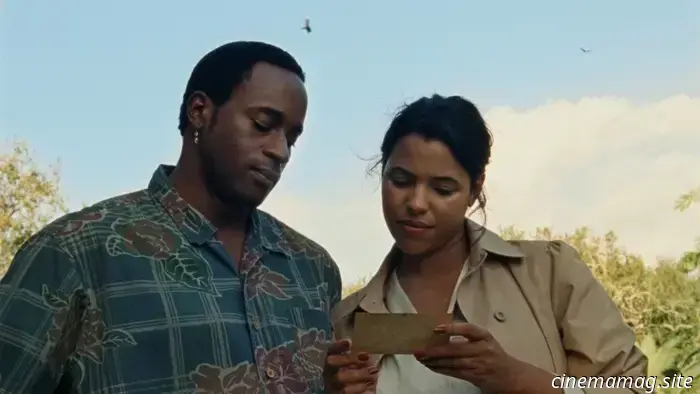 Review of The Ballad of Suzanne Césaire: A Daring Reinterpretation of Black Surrealism
Note: This review was first published as part of our coverage of the 2024 NYFF. The Ballad of Suzanne Césaire will hit theaters on June 6. The feature debut by artist and filmmaker Madeleine Hunt-Ehrlich seeks to highlight its main literary themes and historical background, yet ultimately draws greater focus to its
Review of The Ballad of Suzanne Césaire: A Daring Reinterpretation of Black Surrealism
Note: This review was first published as part of our coverage of the 2024 NYFF. The Ballad of Suzanne Césaire will hit theaters on June 6. The feature debut by artist and filmmaker Madeleine Hunt-Ehrlich seeks to highlight its main literary themes and historical background, yet ultimately draws greater focus to its
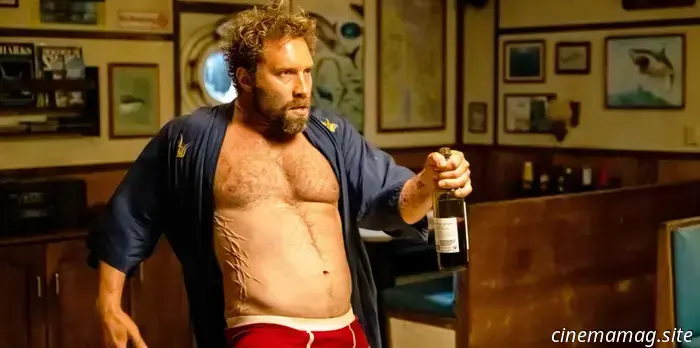 Dangerous Animals Review: A Shark Thriller Combined with Serial Killer Horror That Yields Predictable Outcomes
It might be an indication of something troubling when you can foresee the precise moment a title card appears. This is true for Dangerous Animals, a fresh thriller-horror blend from the skilled Australian director Sean Byrne. Byrne first garnered the interest of international genre enthusiasts with his witty teenage horror film The Loved.
Dangerous Animals Review: A Shark Thriller Combined with Serial Killer Horror That Yields Predictable Outcomes
It might be an indication of something troubling when you can foresee the precise moment a title card appears. This is true for Dangerous Animals, a fresh thriller-horror blend from the skilled Australian director Sean Byrne. Byrne first garnered the interest of international genre enthusiasts with his witty teenage horror film The Loved.
13 Filmmakers Discuss the Future of Queer Cinema: Insights, Encouragement, and Calls to Action
Thoughts on the future of queer cinema from Brian Michael Smith, Eve Lindley, Vera Drew, Marco Calvani, and others.
